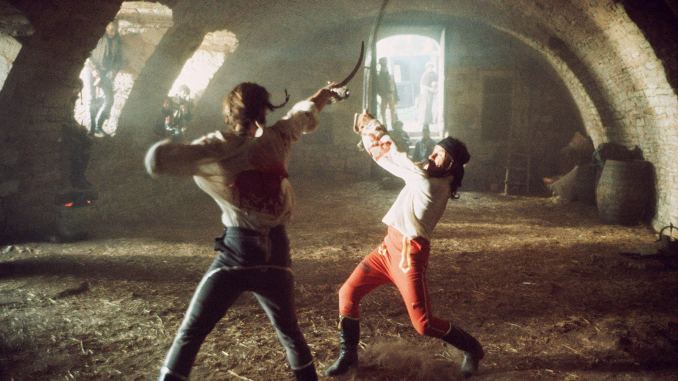The Duellists and Ridley Scott’s Endless Creative Determination

The narration opening The Duellists, Ridley Scott’s debut feature film, describes the pursuit of dueling and the honor it carries as “an eccentric kind of hunger.” It’s an appetite, even an addiction, growing from something small into an all-encompassing, life-consuming force.
The same could be said, depending on who you ask, of filmmaking.
In the 45 years since The Duellists, Scott has built a career composed of more than two dozen films (and counting) as a director, and countless others as a producer or executive producer. He’s delivered universally regarded classics (Alien, Blade Runner), modern favorites (The Martian), underappreciated gems (Kingdom of Heaven) and Best Picture winners (Gladiator), along with a few films that missed the mark—creatively, financially or both. He’s a director of surprising versatility, shifting from dark science fiction to crime drama to thoughtful romance and back again, and he’s well-respected by his actors and his directorial peers.
But what’s perhaps most striking about Scott these days is that the 84-year-old filmmaker’s hunger for creation only seems to be growing with age. During the pandemic, he shot two movies—House of Gucci and The Last Duel—in less than two years, then moved right into work on Napoleon drama Kitbag. Throw in producing work, TV series like Raised by Wolves, and other feats of cinematic efficiency (like reshooting three weeks’ worth of All The Money in the World in just nine days) and it’s clear that Scott has his own eccentric kind of hunger.
Speaking to The Hollywood Reporter earlier this year about his lightning-fast working style and constant state of creation, Scott summed it up like this:
“I’ve never examined how and why I’ve been so busy, but I won’t let the downtime get on top of me. I keep flying. That’s why I always work, because I’m afraid I may miss something.”
Which brings us back to The Duellists, a strikingly good debut by any filmmaker’s standards that, more than four decades after its release, works as a prescient glimpse at what Scott’s career and reputation have become.
-

-

-

-

-

-

-

-

-

-

-

-

-

-

-

-

-

-

-

-

-

-

-

-

-

-

-

-

-

-

-

-

-

-

-

-

-

-

-

-








































